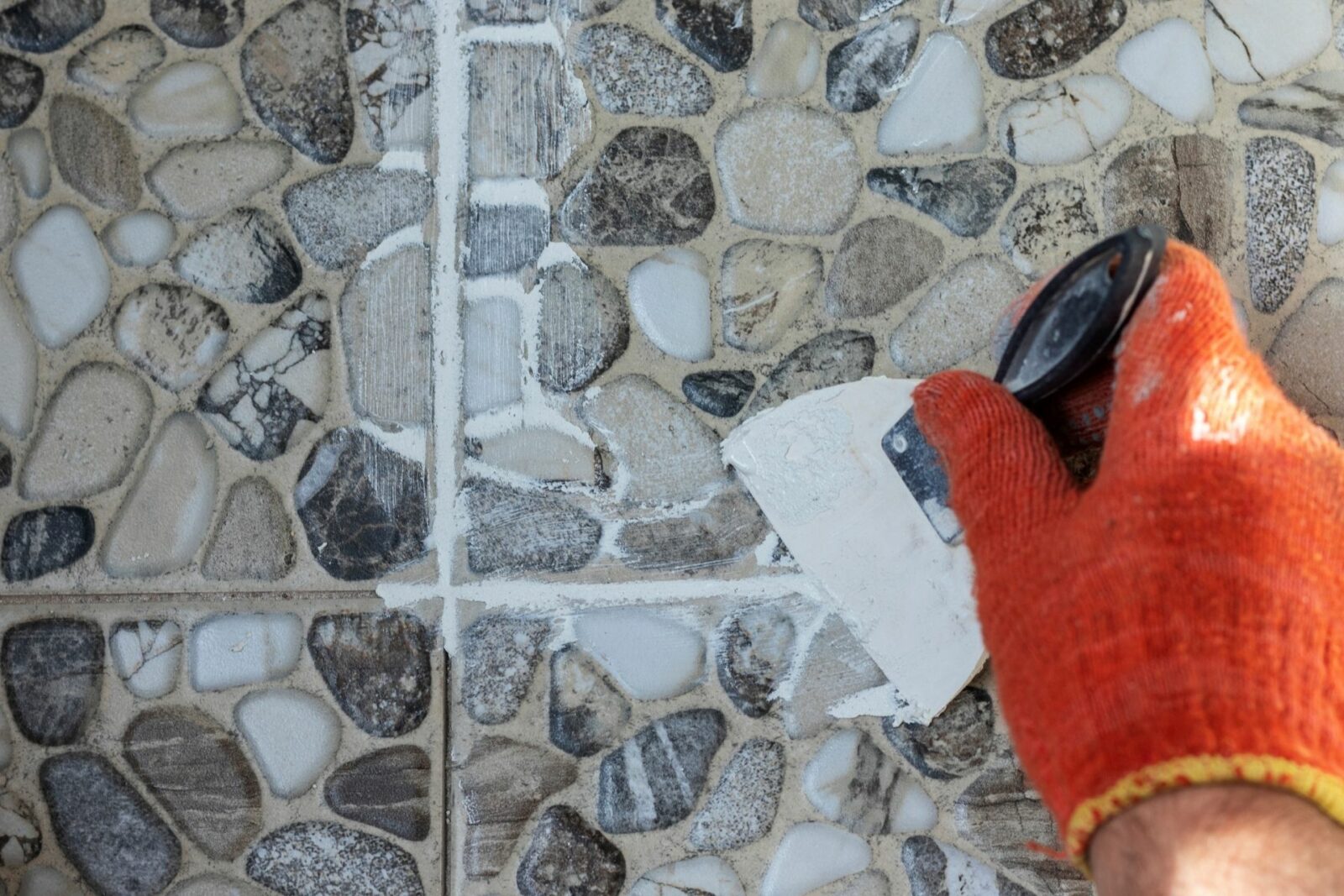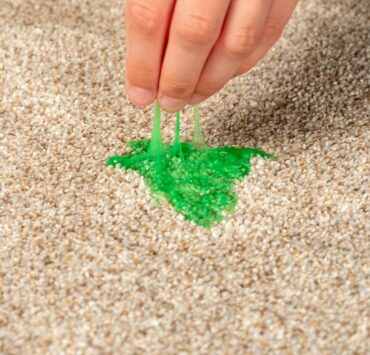Regarding grout material, epoxy grout will give you more beautiful and long-lasting results then cement grout.
Yes, cement has been a go-to material for grout forever and is an excellent material for grouting.
With that said, it has some serious drawbacks such as:
Cement Grout Cons:
- It shrinks over time which means you have the added nuisance to maintain it and refill it.
- The porous nature of cement makes it susceptible to stains. Spills from food, drink, muddy shoes, shampoo etc. will cause cement grout to stain. This can create a very unsightly mishmash of color variations throughout your tiles. And to top it off, the gray color of cement grout isn’t that aesthetically pleasing to begin with.
- Cement grout stains is just one of the issues to consider with its porous nature. Chemical spills, moisture, and other liquids will seep through the cement grout and it’s only a matter of time before it gets damaged.
If you’ve dealt first-hand with the above issues with cement, you’ll know what a hassle it can be. If you’re looking for an alternative, here are 5 reasons you should go with epoxy grout instead of cement:
Epoxy Grout Pros:
-
Epoxy Is Better Suited For High Foot Traffic Areas
High foot traffic areas such as entryways, kitchens and patios would do well with the durability of epoxy. It’s extremely strong and will protect your tiles and floor. It’s unlikely that the epoxy will get damaged as well when walked on, stepped on, dropped on, skidded on etc.
-
Moisture Isn’t An Issue
As good as cement is, the fact that it’s porous poses many issues that you’ll inevitably face down the line. Moisture damage is perhaps at the top of the list of concerns. This especially goes for areas that’s exposed to water such as an outdoor patio, backsplash or bathroom.
Epoxy is resistant to water. It just slides right off. This means that the chances for mildew growth on epoxy grout is virtually zero. On top of that, epoxy is resistant to essentially all kinds of unwanted growth. Bacteria and mold can’t grow on grout.
-
Epoxy Doubles As Being Functional And Decorative
You can double up the functionality of your grout and make it a visual feature in your tiled floor or walls. You can choose what kind of color you want for your cement grout. This is a great opportunity to compliment the look of your tiles.
For instance, you can create a more opulent look for white tiles with gold grout. You can also promote the calm neutrality of beige tiles with off white grout. There’s a wide array of epoxy grout colors you can choose from to make your tiled wall or floors look that much more put-together.
Bonus points, you can choose more than one color for your grout.
-
Epoxy Grout Is Easy To Maintain
When properly applied, epoxy grout can last you up to 15 years with zero to minimal maintenance. Although epoxy costs more to buy and install initially, once the job is done, you don’t have to do anything. Epoxy doesn’t require a sealant and will last you years without any issues.
-
Epoxy Is Easy To Clean
Unlike cement which can grow mold and absorb all kinds of dirt, contaminants sit on top of epoxy. Epoxy grout is much easier to clean than cement because dirt doesn’t seep in. There’s no need for heavy scrubbing to remove dirt and stains on epoxy grout. A microfiber mop and your choice of mild cleaner will do to maintain its cleanliness.
Epoxy Grout Cons:
-
Epoxy Grout Is More Difficult To Apply
Due to the short amount of time it takes for epoxy to solidify, it’s more difficult to apply as a grout. Epoxy is also much thicker, making it harder to work with. You’ll need to have an installer that can quickly and precisely apply it. Any delays can cause the grout to dry over your tiles.
-
Epoxy Grout Is More Expensive
You can spend a costly amount for epoxy grout as opposed to cement. Epoxy grout costs approximately $8.00 per pound. In comparison, cement grout costs $1-$2.
Along with the cost of epoxy is the cost of the professional who’ll install it. Installers charge more for epoxy due the material being more expensive and harder to work with than cement. You can be charged up to $6.50 per square foot whereas installing cement grout typically costs $0.80.
-
Epoxy Turns Yellow Over Time
If you’re sold on the idea of choosing your own grout color, know that epoxy turns yellow over time. While this may not be an issue for darkly colored epoxy, light colors will alter. White grout instance may not look great when it turns yellow against pristine white tiles. Black tiles with white epoxy grout also will have its aesthetic ruined when the epoxy turns into a dingy yellow.
-
Colored Epoxy Grout Can Stain Your Floor
Before you apply epoxy grout to your floor or walls, know that the stuff can stain. As briefly mentioned, hardening onto your floor material isn’t the only issue. Epoxy can stain floor materials, particularly porous ones. Marble, laminate, granite, and tile are porous to a certain degree. This needs to be taken into consideration when using epoxy for grouting, especially colored ones. Make sure that the sealant for your floor material is intact and in good condition to minimize the risk of staining.
Opting for epoxy instead of cement grout will give you beautiful and long lasting results. The durability and low-maintenance of epoxy grout is hard to beat. If you’re willing to spend a little extra, go for epoxy grout. This will make maintaining your floors and walls easier down the line and will help ensure that they age well.








